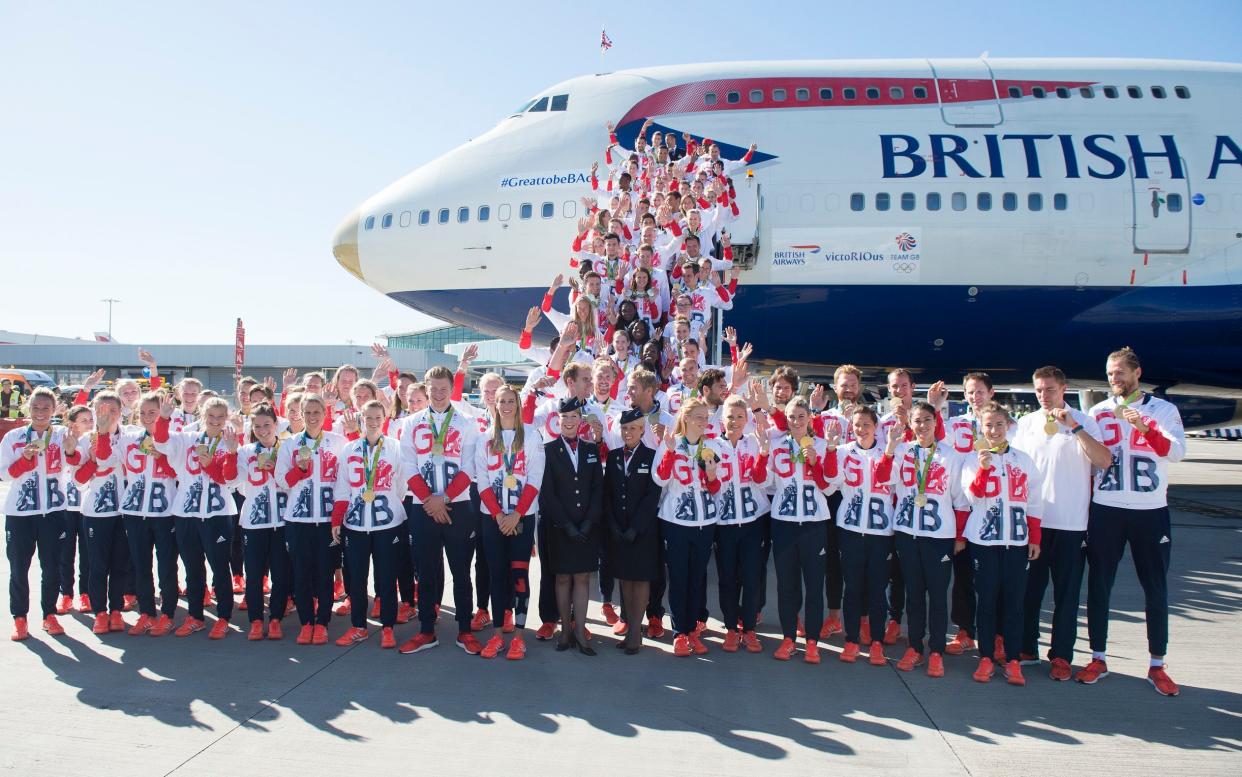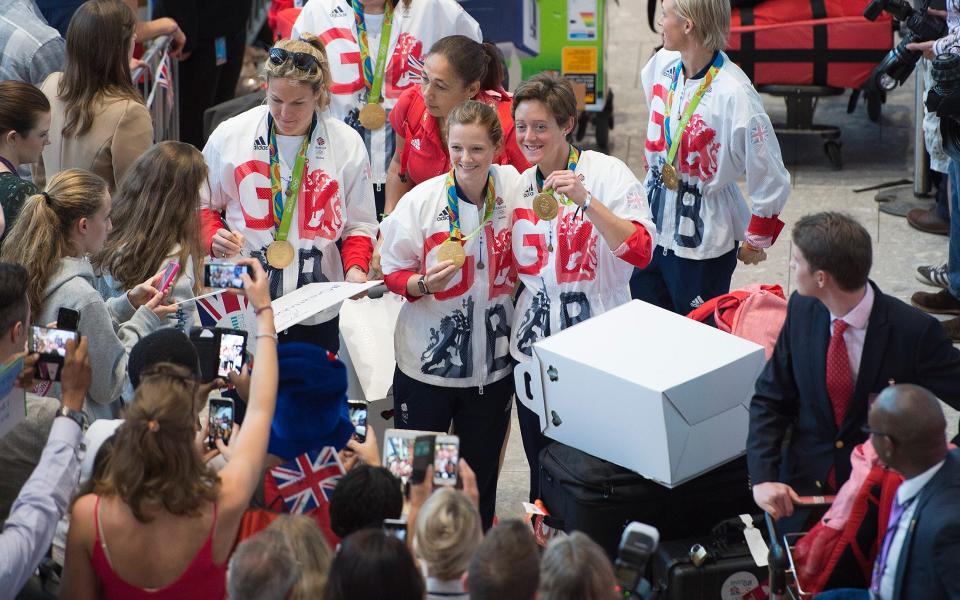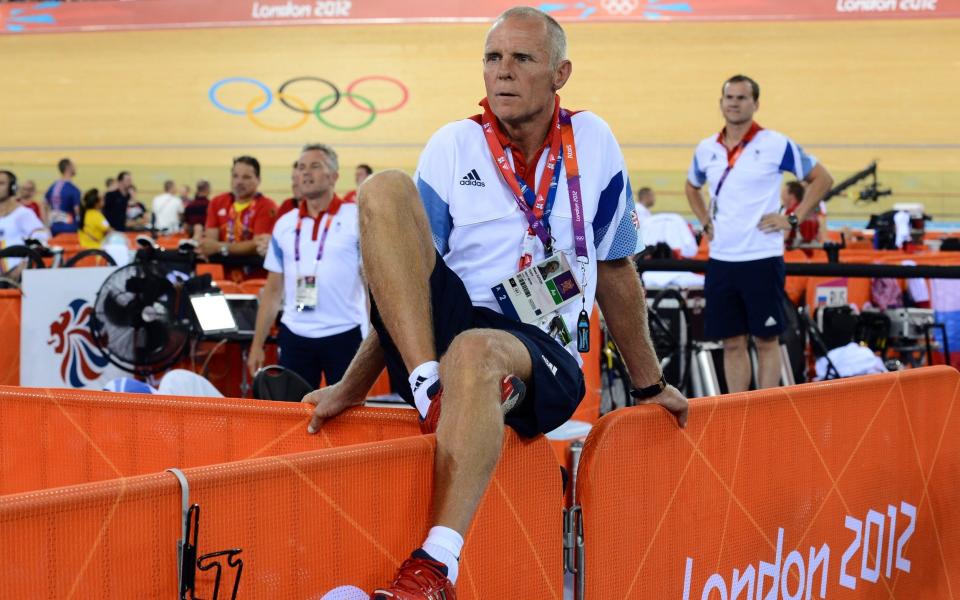Special report: The human cost of GB's Olympic gold rush is revealed in flood of accusations

It was Britain’s most triumphant Olympic homecoming. Team GB had just delivered the country’s most successful away Games, winning its most medals for more than a century, finishing second in the Rio 2016 table, and making it the first nation to beat its tally from a home Olympics at the next attempt.
A gold-nosed plane christened “VictoRIOus” was dispatched to fly athletes back to a heroes’ welcome and parades in Manchester and Trafalgar Square. It was a similar story for ParalympicsGB, who jetted home on the same plane from a Games at which they, too, bettered their London 2012 exploits.
But there was a dark side to the medal-winning formula that had transformed Britain from laughingstock to sporting superpower within two decades, one that began to emerge just before the Rio Olympics before crashing into view in the four years since. Those years have brought an avalanche of public accusations of bullying, discrimination, negligence, and even sexual assault and child grooming that have gone right to the top of the country’s most successful Olympic and Paralympic sports.

Cycling, swimming, gymnastics, rowing, equestrianism, canoeing, taekwondo and archery – which between them won more than 60 per cent of Britain’s 214 medals in Rio – have all been engulfed by the scandal, which persists today, on what would have been the final day of the Tokyo Olympics.
The crisis can be traced back to the advent of the medal-winning formula on which Britain’s Olympic and Paralympic empire has been built, according to those who have witnessed its impact first-hand. In the 1996 Olympics, the country won just one gold and 15 medals overall, their worst performance since 1952. Within months, the Government launched a new agency, UK Sport, into which it ploughed tens of millions of pounds of taxpayer and National Lottery money. The cash was to be used to harvest Olympic and Paralympic medals in a “no compromise” approach to funding.
The formula was simple: national governing bodies who could convince UK Sport their athletes had the ability to win medals at the next Games got money; those who could not got nothing. Survival of the fittest.
The impact was immediate. What were now dubbed Team GB won 11 gold and 28 medals overall at the 2000 Olympics. With the concept proven, the awarding of the 2012 Games to London in 2005 coincided with UK Sport’s funding soaring to hundreds of millions of pounds in an effort to ensure home success.
Ed Warner was chairman of UK Athletics between 2007 and 2017. He says UK Sport unwittingly became “almost cult-like in its collective self-belief in the drive for medals”, drawing a direct link between that “monoculture” and the ongoing scandal. “If the overall judgment of the success of the sport is boiled down entirely to, ‘Do you win or do you lose?’, then the way in which governing bodies organise themselves, the way in which individuals who are charged with delivering success in those governing bodies behave, will boil down to ‘win or lose’. And it’s a very small step from that ‘win or lose’ to ‘win or lose – at all costs’.”
Others are less certain how much the relentless pursuit of medals can be blamed. British Cycling – previously lauded as a “medal factory” – was the first NGB to become engulfed by the scandal three months before the Olympics when Jess Varnish accused Shane Sutton, its technical director, of sexism. Further allegations that Sutton, who denied any wrongdoing, had called para-cyclists “gimps” and “wobblies” led to an independent review that found there had been a “culture of fear” within the NGB’s elite programme.

The review also ruled that Sutton, found by British Cycling to have used the word “bitches” to Varnish – though exonerated on the other eight charges – had employed sexist language but not decision-making and that his use of the terms “gimps and “wobblies” had been “inappropriate”.
Annamarie Phelps, who was chair of British Rowing at the time, led that review. A former Olympian herself – she competed in the women’s eight at the now-notorious 1996 Games – she says the same culture may have been endemic in many sports pre-Lottery funding, but that the money and success which followed meant they came under greater public “scrutiny”.
And she believes it may not be a coincidence that the generation of athletes who have known nothing but the current system have become the first to speak out against it.
John Mehrzad QC worked with Phelps on the cycling review. He says: “Once upon a time, if you were being trained, it was a bit like going into a military boot camp. If your coach said, ‘Jump down onto the mud and do 50 press-ups’, you did it. As a general reflection of what’s happening in society now, these standards are just not acceptable.”
Mehrzad went on to lead reviews into British Equestrian and UK Athletics, which were focused on governance failings rather than athlete welfare. But he says this was also at the heart of the latter problem, with NGBs run by members and volunteers who did not have the appropriate oversight of increasingly professionalised performance departments.
By the time the cycling review was published in June 2017, other sports had been dragged into the scandal and UK Sport responded by promising “a root and branch review of culture across the high performance system”. That led to a regular “culture health check” of sports, as well as several other measures. It also created a new head of sport integrity role to which it appointed John Donnelly, a former army brigadier involved in the inquests into the Deepcut scandal, to ensure sports dealt appropriately with complaints amid accusations they had not. And the Government even appointed one of Team GB’s London and Rio heroes, Dame Katherine Grainger, as UK Sport’s new chair.

Independent reviews were published in other sports, but they all dealt with incidents that predated UK Sport’s action plan and were easily dismissed as historic. That included claims by former gymnasts that have re-emerged this month in the wake of a Netflix documentary about the USA Gymnastics sex abuse scandal.
But others have now come forward alleging more recent failures within British Gymnastics – including Rio medallist Amy Tinkler – raising major questions about whether enough has been done since 2017 to stop the rot.
That was the same year the Government published a review of “Duty of Care in Sport”, which it had commissioned in December 2015. That review was led by Paralympic legend Baroness Grey-Thompson, who says she heard tales of abuse from many athletes, including famous faces. “Some of it was horrific,” she adds.
Rushed out hours before purdah ahead of the 2017 General Election, the review made seven priority recommendations. They included the creation of a sports ombudsman and an independent survey by which to benchmark the effectiveness of duty of care policies and influence NGB funding. But virtually none of those recommendations were acted upon, with more than one source saying UK Sport lobbied against them because it was confident it could fix the problem itself. Another says the report was so flawed as to be impossible to implement. Grey-Thompson disputes this. “Am I surprised?” she says of what became of her report. “Not really. Because it feels what happens is we have one investigation and then it all goes quiet. And then the next one blows up and it goes away again. And everyone talks about, ‘This is the watershed moment’. And is it?”
Phelps, who is now vice-chair of the British Olympic Association and chair of the British Horseracing Authority, also worked on the review. She says: “It was frustrating that there was a lack of response, that there didn’t seem to be the appetite to pick up anything that was radical or new.”
What the gymnastics scandal has shown is that for all the action taken by UK Sport since 2017, many athletes simply do not trust governing bodies to investigate complaints properly. That has led to renewed calls for such complaints to be handled by a fully independent entity, one that could also police NGBs’ compliance with their duty-of-care obligations. Grey-Thompson says: “There needs to be somewhere else to go.” One place athletes are going in increasing numbers is to the British Athletes Commission, the representative body for the country’s elite Olympic and Paralympic athletes.

It has been intimately involved in some of the independent reviews conducted in recent years, including the one about to get under way in gymnastics. It says it is on course for a fivefold increase in welfare-related cases this year compared to 2018 – although it says that may only be because people are more willing to come forward than previously.
UK Sport actually funds the BAC and one of Grey-Thompson’s recommendations was for the Government to do so instead so it could become fully independent. BAC chief executive Mahdi Choudhury backs that recommendation, as well as Grey-Thompson’s call for greater independence throughout the system, saying athletes needed to be able to voice their concerns in “safe and confidential ways”.
Even those who represent coaches support such a move. Mark Gannon is the chief executive of UK Coaching, which has just launched a “Duty To Care Toolkit” for its members, partly in response to Grey-Thompson’s “Duty of Care” review. “The biggest concern for me is there isn’t somewhere where these athletes’ voices can be heard,” he says. Warner, who has also chaired the British Equestrian Federation and British Basketball, believes stripping NGBs of funding for failing in their duty of care would simply punish innocent athletes for whom the money is intended. Instead, he wants those running the sport to pay the ultimate price. “My first step would be demanding regime change straight away.” UK Sport, meanwhile, has only just defeated a legal challenge against its entire system of funding brought by Varnish, who wanted athletes to be granted the same rights as employees.
It also announced last year it was softening its “no-compromise” approach in favour of longer-term outcomes post-Tokyo following a public consultation. Warner credits Grainger and chief executive Sally Munday for having driven through much-needed change since their arrival, adding: “I do believe that you should judge British Olympic and Paralympic success more broadly than purely medals.”
Grainger acknowledges the organisation can do more. “The time is right for an industry-wide discussion to examine the case for how specific integrity-related matters can be dealt with most effectively and it’s something I’ll be discussing with our board in the coming weeks.”
She also says UK Sport is “open” to exploring a new operating model for the BAC, the funding of which it almost doubled between the Rio and Tokyo Games. “UK Sport, in common with the whole high-performance system, has learnt many lessons in recent years. It has been uncomfortable at times, but we are convinced the system is, and will be, better for it.”
As for the 20 years that preceded all those medals in Rio, Mehrzad believes some may already be looking back on it not only as a great period of sporting success but also one “when a lot of issues were swept under the carpet”.
“I think we’re already looking back and wondering, ‘Was it all worth it?’”

